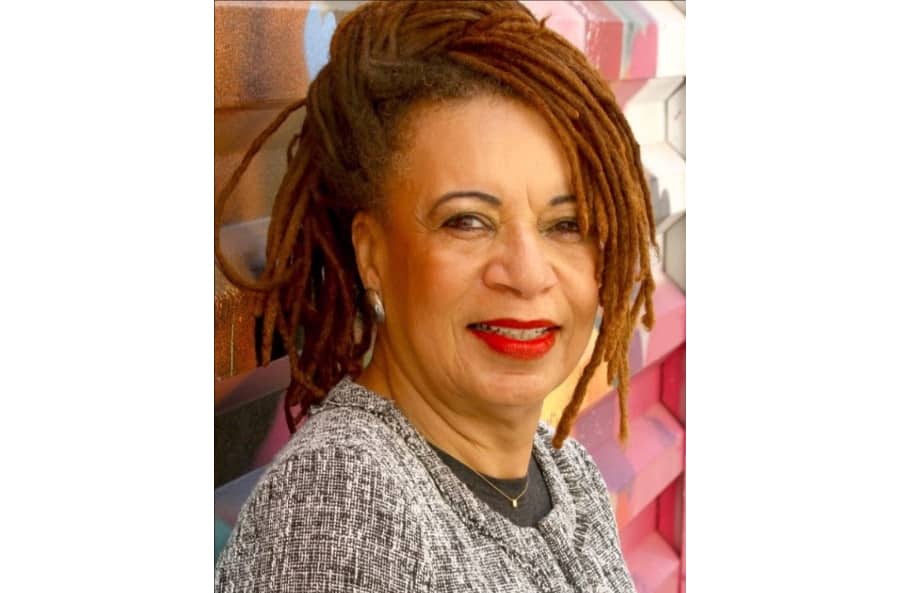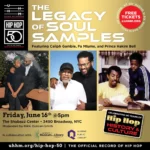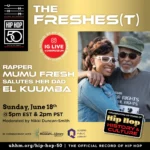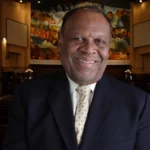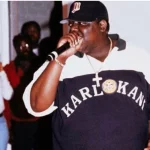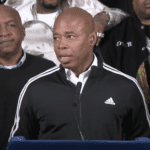The Business of Hip Hop started with women executives.
It’s true. A culture so cemented in masculine identity has been championed, shaped, marketed and financed by lady executives that saw the vision and ran with it.
The challenges that they faced as females in male-driven spaces were offset by the joy cult shifting. Believe it or not, there are few places in the world that boom-bap is not the lingua franca. And while no one woman can claim to birth the magic of this genre of music, it would be erroneous to believe that the work of Cindy Campbell, Sylvia Rhone, Nana Carmen Ashhurst, Monica Lynch, Lady B, Mona Scott Young, Sophia Chang, Chivon Dean, Julie Greenwald, Karen Mason and so many more did not incubate rap as a baby into the full-grown force that it is today.
Places where pantyhose are mandated and people insisted women present themselves in full girdles, these women, who jumped into the game early and kicked down doors (even in stilettos), made an impact on rap music from a corporate level during a time when people desired to relegate them to the secretary’s position.
Their jobs seemed sexy because they did it with grace, but layers of sexual harassment, mansplaining and good old boys’ club often presented obstacles that needed to be dismantled, in efforts to pave a womanist wave that would lead to Desiree Perez claim her seat in the C-Suite at Roc Nation; Rayna Bass and Mignon Espy to shape 300 Entertainment into the dynamic force that it is today; Katina Bynum legs to walk into her role as EVP (East Coast Labels) the Universal Music Enterprises; Phylicia Fant to be one of the most notable forces to lead urban music for Columbia Records; and allow Ethiopia Habtermariam to sit in that historical seat at Motown, once held by Berry Gordy in a way that her distant predecessor Suzanne De Passe was denied.
While the ladies were pushing down doors on the mic, these women were in those stuffy boardrooms signing your favorite artists, making sure that budgets didn’t get cut or misused, and building up morale back when the world rejected rap music flat out.
In 2022, there are plenty of spaces where the radical concept of femme-forward leadership is a norm.
At Spotify, Whitney-Gayle Benta, the Global Head of Artist and Talent Relations, is an uncompromised leader that balances motherhood while she conducts meetings about creator experience amplification or expanding an artist’s brand.
And even with all of this, programs like the now-defunct WEEN Academy (Women in Entertainment Empowerment Network) are needed to help shape young women in the industry. The level of impact left by their founders Kristi Henderson, Lauren Lake, Sabrina Thompson Mitchell, and Valeisha Butterfield Jones (a woman that took her work from the Hip Hop Summit Network and parlayed it all the way to the top seat at the Recording Industry).
Spelman College understands the impact that mentorship and is hosting its third Entertainment Summit this month. The goal is to open the doors for the next generation of leaders in corporate Hip Hop and push them to define the culture for themselves, without rejecting who they are as women.
On Wednesday, Mar. 16, The Hip Hop Museum hosted, “What’s Good, Madame President ?!?: Smashing the Patriarchy in Hip Hop’s Presidential Suite. The panel featured Nana Carmen Ashhurst, the first female President of Def Jam Records and the Chair of The Hip Hop Museum, and Monica Lynch, the first female President of Tommy Boy Records. This program was co-sponsored by The Hip Hop Museum, Fresh Bold and So Def, and the Hip-Hop Education Center.



